Categories
The best people for the job: what local organizations do differently
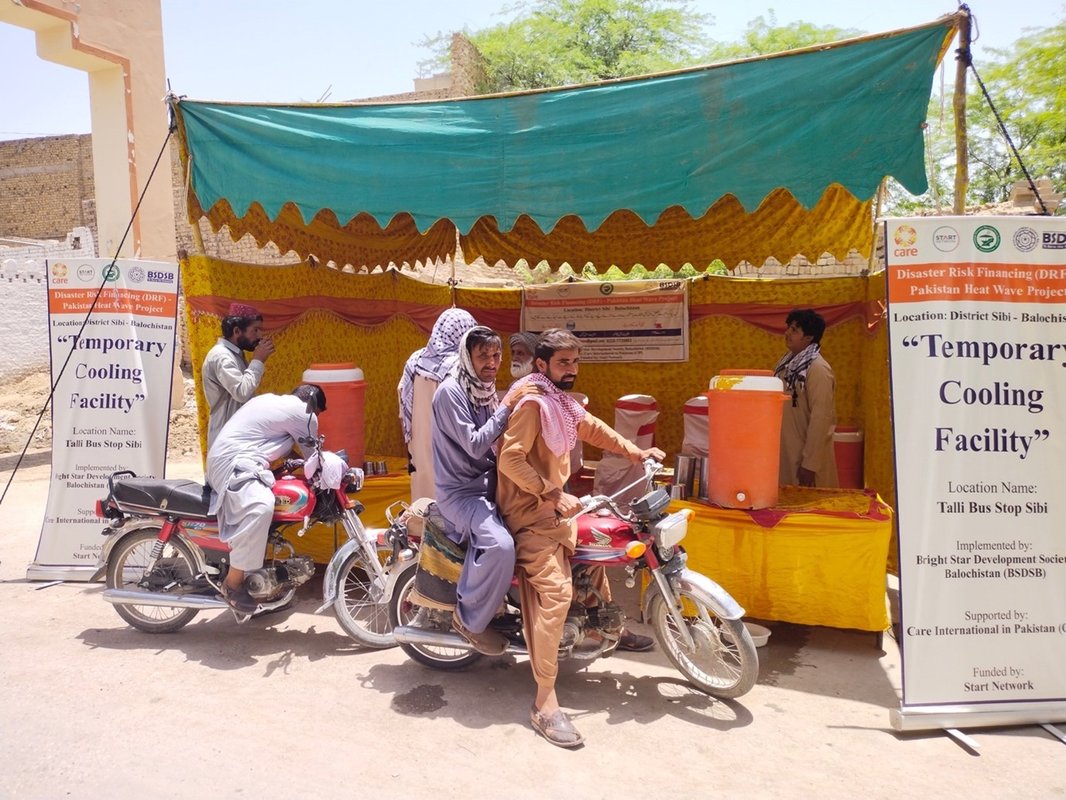
The humanitarian system is often criticized for being dominated by international actors at the expense of local organizations. But how do local organizations add value over and above international non-governmental organizations (INGOs) – especially in anticipation of a crisis? What are they doing differently? This blog outlines the evidence of how a local organization is able, by virtue of being local, to provide more relevant solutions to assist communities affected by crises.
A recent literature review highlighted a lack of evidence regarding the effects of localization, both on the impact and quality of humanitarian responses. Even in this enlightened piece of research, however, the focus was towards comprehensive value-for-money exercises or impact evaluations, rather than gathering evidence and lessons around what local organizations can do differently.
To address this, the Start Network, in collaboration with GLOW Consultants, undertook an evaluation in Pakistan to reflect on the ways in which local organizations add value, especially in advance of a crisis.
This added value operates at two levels. Local organizations better understand when to act, as they are in the area and aware of possible impeding crises through, for example, changes in weather patterns. They also better understand how to act, as they can offer services that are more aligned to community needs, contextually relevant to cultural norms, and better coordinated with local government and other stakeholders.
Anticipating heat waves in Pakistan
In response to an anticipated heat wave in Sibi, Balochistan, one of the Start Network’s local members, the Bright Star Development Society Balochistan (known as Bright Star) set up cooling facilities, comprising a shaded area with seating and a supply of clean cold water. The idea came from previous learning and consultation with stakeholders, and they were set up in addition to the standard heat wave messages that many organizations provide.
We, Bright Star, were keeping a close eye on the evolving heat wave situation in Sibi. When the situation deteriorated, leading to unprecedented heat in the area, building upon our partnership with the Start Network we conceived this project. Activities under this project were based on our previous learning, as well as consultation with the key stakeholders. The offering of water or milk to the general public at certain religious occasions is part of our cultural and religious values… It was this sense of civic service which became the source of this idea. We were able to maximize outreach to the affected population at minimal cost and without any time delay. The timely response from the Start Network helped to save lives and reduce the suffering for the people of Sibi as a result of [the] heat wave.
As part of the evaluation, we spoke to a range of stakeholders involved with the implementation and use of these cooling facilities. It was clear from the interviews that these facilities were only possible because of Bright Star’s presence in the area, their local staff, and the trust they have built up – with the community and the local administration – through inclusion and meeting needs.
Bright Star coordinated with the government
Two government officials recounted how Bright Star established strong coordination with the local administration and are well known to them. They spoke about how this is different from INGOs, which often just come in for their activities and then leave without engaging with the government. The officials noted how important this engagement is to ensure they have the required support and protection for planned activities.
There is a difference between local NGOs and INGOs, as local NGOs keep better coordination with the government. They are also known to our office. This is not always the case with INGOs, who come and leave, and many times are not known to us. Among the local NGOs, Bright Star is doing a good job.
The staff of Bright Star in Sibi [have] established strong coordination with the local administration. It helps Bright Star to know the needs and include the recommendations of the public in its project delivery… It is important for organizations like Bright Star to consult with the community, and us as government, to ensure they have all the required support and protection for their activities.
Bright Star consulted with local shopkeepers and traders
The cooling facilities were located at three bus stations. The focus was to provide support for travellers, who face a particularly high risk from heat waves as they are away from home with nowhere to rest. Bus stations are busy places, though, and plots have high premium value.
A bus driver and a local fruit cart owner recalled that Bright Star first consulted with traders and shopkeepers at the bus station to secure these spots. They also spoke about how consulting with the community in general is important to build up trust, as is having local staff who are seen drinking from the same water coolers that they are providing as a public service.
I know they consulted shopkeepers at the bus stand and this [is] how they got this place; otherwise, they would not have given them this spot in such a busy and expensive place. It is important to engage the local community and officials in such initiatives, as they have a better knowledge of the regional dynamics and may help in enhancing the effectiveness of the work done.
The good thing Bright Star did was to speak with the bus stand trader leaders; I think this really helped to gain the trust of people. Also, the staff were local… they were even drinking water from the coolers, so it made me feel OK that this water is safe to drink.
Bright Star has built a reputation and understanding with communities
As mentioned, consultation with the community is essential for building trust and ensuring the effectiveness of an initiative. A stakeholder working in the humanitarian sector, and based in Balochistan, explained how Bright Star really works to understand community needs. This makes its work more effective than, for instance, INGOs which do not understand “local dynamics and ground realities”.
Bright Star’s working [mode] is to understand local communities and, as a result, they are accepted by communities. I am satisfied with their response, and it is for everyone without any discrimination… Bright Star is more aware of the local dynamics and ground realities, which [are] unknown to INGOs, and this makes its work more effective.
I have known Bright Star for a long time. I am witness to many of the projects they have done in past. They execute and deliver them efficiently [and] they know the psychology of local community and respond accordingly… One of the reasons they are good is they provide what people need and it makes people support them.
Bright Star could access relevant risk information
Bright Star’s office is in Quetta, the largest city in Balochistan, and it also has a field presence in Sibi and the surrounding districts. This not only builds trust with the community, but also puts it in the unique position of being able to access relevant contextual information.
Without Bright Star being able to source local meteorological data, the heat wave response would not have happened at all. The Sibi region is too mountainous for the heat wave forecasting model to work, so the trigger (or ‘activator’) for an early action response is instead based on observations. In this instance, the observations came from Bright Star, which could access current weather information and then alert the Start Network of an imminent heat wave.
Bright Star has close engagement with the local meteorological department. We often visit their office when we need to check on local weather information, and also receive daily updates through a local WhatsApp group. This group includes the provincial disaster management authorities, district administration, meteorological departments, and civil society organizations such as ourselves that work in Balochistan. If we receive information on extreme weather events, such as [a] heat wave or excessive rain, we alert the relevant staff, communities and other stakeholders in our project areas.
The added value of local actors
These are just some examples of how local actors can do things differently when acting in anticipation of a crisis, providing alternatives to the traditional ‘cash or kits’ approach often adopted by INGOs. The main message is that being present and taking time to build relationships provides local organizations with an edge over those that just ‘drop in’ when there is an emergency.
The Start Network will continue to collect and share stories and examples as we work alongside our local members. We advocate for others to do this same, so that together we can build the evidence and learning base around how local can be better, for anticipatory action and other humanitarian activities.
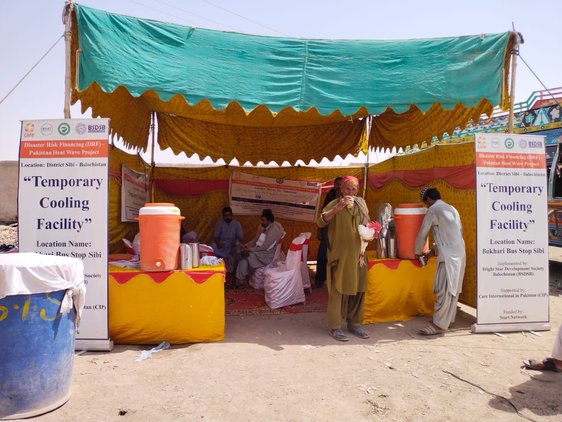
A cooling station in Sibi, Balochistan, set up in anticipation of a heat wave. © Bright Star
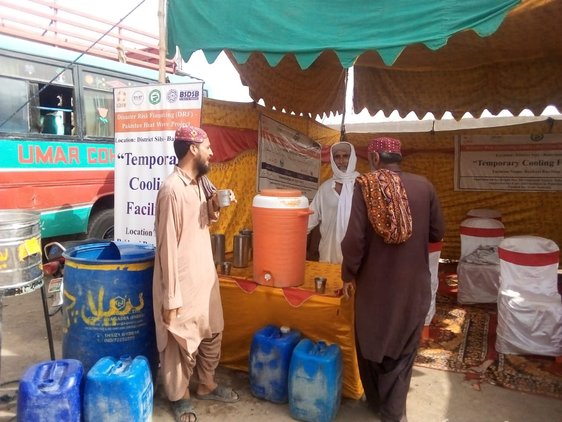
A cooling station in Sibi, Balochistan, set up in anticipation of a heat wave. © Bright Star
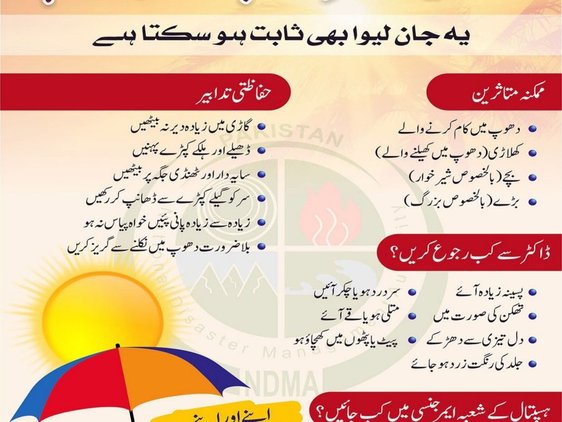
Poster advertising a cooling station, Pakistan. © Bright Star
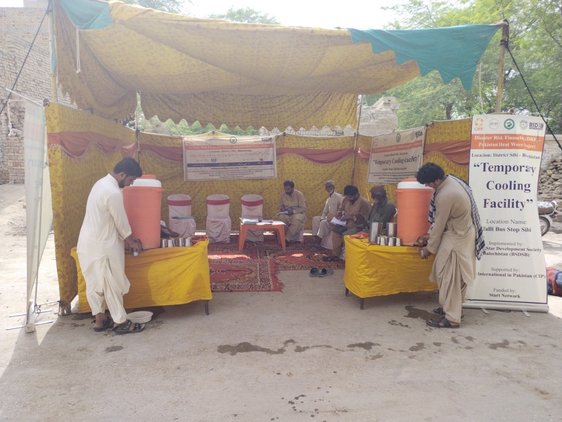
A cooling station at Talli bus stop in Balochistan, Pakistan. © GLOW Consultants
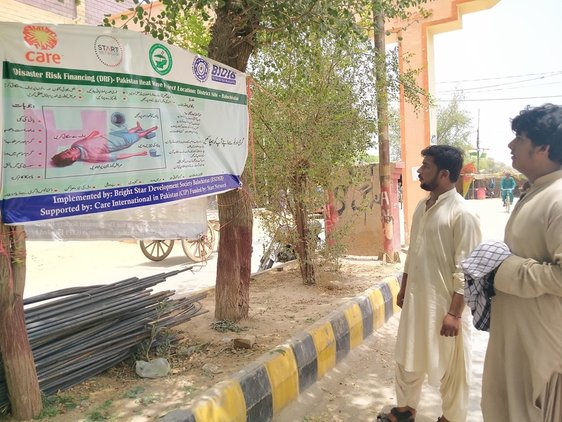
A sign warning of a heat wave at Talli bus stop, Pakistan. © GLOW Consultants
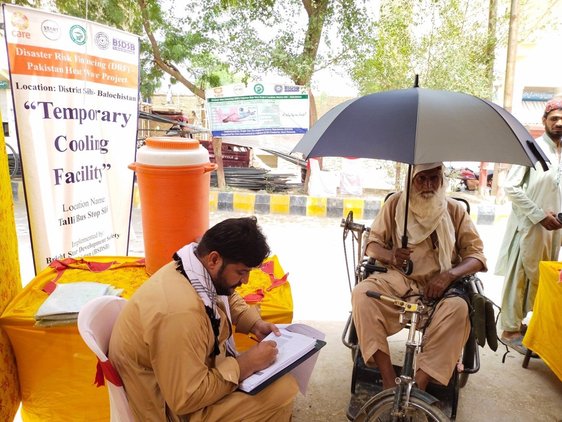
Conducting an interview with a cooling station user. © GLOW Consultants
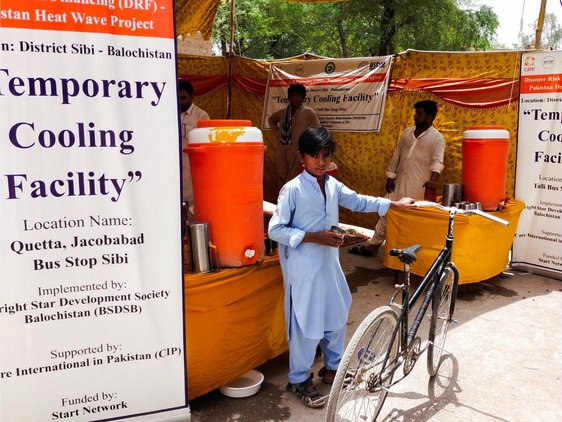
A cooling station at Jacobabad bus stop, Quetta, Pakistan. (c) GLOW Consultants
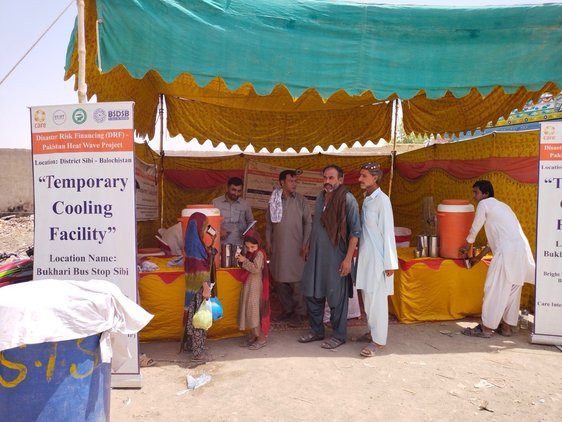
A cooling station on Allah Abad Road, Pakistan. © GLOW Consultants
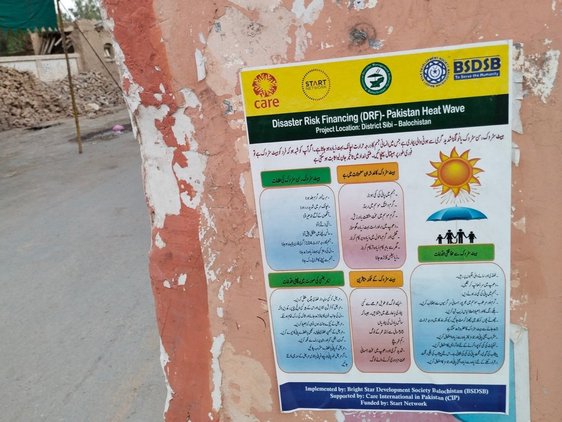
A poster on a wall close to the Allah Abad Road cooling station. © GLOW Consultants
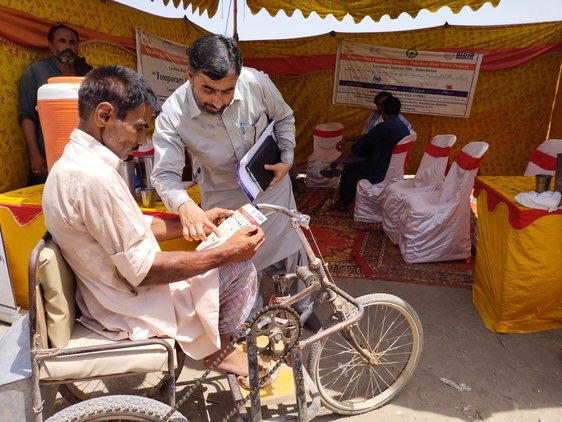
Bright Star staff explain messages in a pamphlets at Allah Abad Road cooling station. © GLOW Consultants
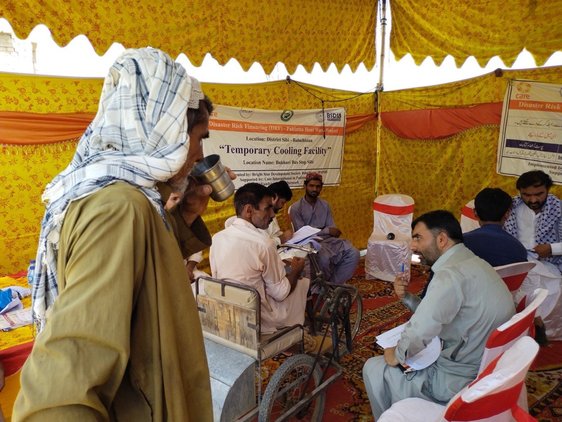
The cooling facility on Allah Abad Road. This was provided for the public by the Bright Star Development Society Balochistan, in response to the heat wave in Sibi, Balochistan, Pakistan. © GLOW Consultants
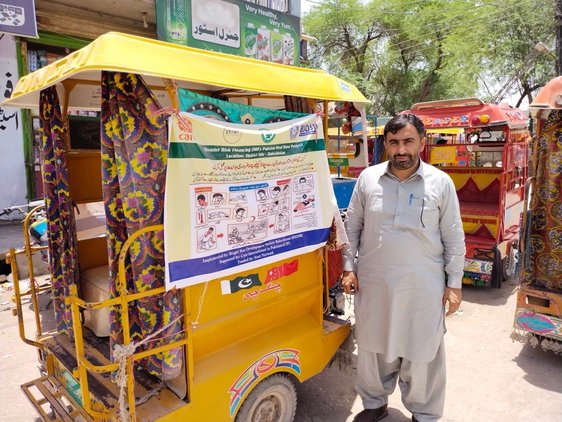
Rickshaws close to the Allah Abad Road cooling station, Pakistan. © GLOW Consultants

A man pours himself a drink from the Allah Abad Road cooling station, Pakistan. © GLOW Consultants

A cooling station in Sibi, Balochistan, set up in anticipation of a heat wave. © Bright Star
A cooling station in Sibi, Balochistan, set up in anticipation of a heat wave. © Bright Star
Poster advertising a cooling station, Pakistan. © Bright Star
A cooling station at Talli bus stop in Balochistan, Pakistan. © GLOW Consultants
A sign warning of a heat wave at Talli bus stop, Pakistan. © GLOW Consultants
Conducting an interview with a cooling station user. © GLOW Consultants
A cooling station at Jacobabad bus stop, Quetta, Pakistan. (c) GLOW Consultants
A cooling station on Allah Abad Road, Pakistan. © GLOW Consultants
A poster on a wall close to the Allah Abad Road cooling station. © GLOW Consultants
Bright Star staff explain messages in a pamphlets at Allah Abad Road cooling station. © GLOW Consultants
The cooling facility on Allah Abad Road. This was provided for the public by the Bright Star Development Society Balochistan, in response to the heat wave in Sibi, Balochistan, Pakistan. © GLOW Consultants
Rickshaws close to the Allah Abad Road cooling station, Pakistan. © GLOW Consultants
A man pours himself a drink from the Allah Abad Road cooling station, Pakistan. © GLOW Consultants
This blog was written by Helen Guyatt, head of evidence and learning, Start Network.
